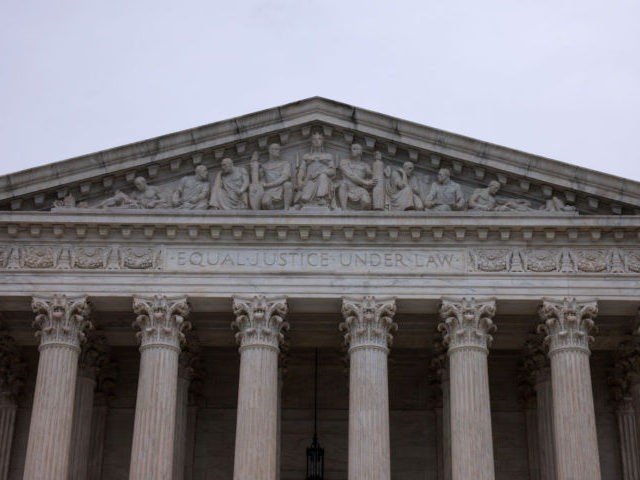The Supreme Court has agreed to hear a case on the controversial 1978 Foreign Intelligence Surveillance Act (FISA) in the first of its kind, the court announced Monday.
The 1978 FISA allows federal law enforcement and intelligence agencies to secretly gather information on persons suspected to be foreign agents engaged in espionage or international terrorism against the United States. To obtain a FISA surveillance warrant, the Justice Department must present evidence to a secret FISA court, known as the Foreign Intelligence Surveillance Court (FISC).
Currently, that evidence is kept secret under the state-secrets privilege. However, the American Civil Liberties Union (ACLU) is arguing that a federal judge must be able to review that evidence to determine if the surveillance was justified. The Supreme Court will decide whether the FISA’s Section 1806(f) displaces the state-secrets privilege and authorizes federal judge to consider the privileged evidence in order to resolve the merits of a lawsuit challenging the lawfulness of the government surveillance.
The case under review involves three Muslim American men who accused the FBI of illegally using a paid confidential informant to surveil them after the 9/11 attacks. Their case against the FBI was dismissed based on state-secrets grounds, then revived by the Ninth Circuit Court of Appeals. The Supreme Court will now review the Ninth Court’s ruling.
Many Americans became aware of the FISA process and its flaws after the 2016 campaign, during which the FBI obtained multiple FISA warrants to surveil Trump campaign adviser Carter Page, based on information presented to a secret FISA court that contained uncorroborated and falsified information to suggest that Page was a Russian agent. Republicans in Congress, as well as the DOJ inspector general, were able to investigate and uncover numerous errors, discrepancies, and flaws in the DOJ’s applications and process in obtaining four warrants on Page.
In one of the most egregious examples, FBI lawyer Kevin Clinesmith doctored an email to suggest that Page was never a Central Intelligence Agency (CIA) informant, even though the email clearly said he was. That false information was considered by the FBI as they requested a third FISA warrant from the FISC to continue surveilling Page.
Somewhat ironically, the current case under Supreme Court review involves another Trump-era figure — former Special Counsel Robert Mueller. When Mueller headed the FBI in 2006, the agency used a confidential informant to surveil Muslims in Southern California. The informant, Craig Monteilh, converted to Islam and spent 14 months conducting surveillance on hundreds of Muslims in the community, according to the ACLU.
The ACLU sued the FBI and Mueller, as well as others, on behalf of a Muslim American named Yassir Fazaga and two other men, for violation of their First Amendment rights.
A federal district court dismissed the case on state secret privilege in FISA’s Section 1806(f), which allows for the federal government to withhold evidence of surveillance that could disclose state secrets from a civil court case. The ACLU appealed to the Ninth Circuit, which reversed the ruling in 2019, on the grounds that FISA displaced the state secrets privilege. The government then appealed to the Supreme Court.
The case is Federal Bureau of Investigation v. Fazaga, No. 20-828 in the Supreme Court of the United States.
Follow Breitbart News’s Kristina Wong on Twitter or on Facebook.

COMMENTS
Please let us know if you're having issues with commenting.